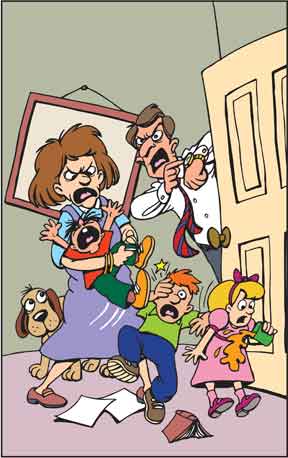Aditi Mathur and Ratnesh Mathur
A set of parents who were visiting our school, asked, almost as a matter of fact, “So how do you handle a child who misbehaves”?
In a blinding rush my childhood flashed in front of me – they were talking about me (rather kids like me).
 I smiled, “There is no child who misbehaves. For that matter there is no adult who behaves either!”
I smiled, “There is no child who misbehaves. For that matter there is no adult who behaves either!”
They were completely puzzled and started a spontaneous objection, “But…” I interrupted them, “Wait, come with me outside.”
“We have a set of crossroads right outside our school. If you stand there for some time you can see four big cars driven by four high profile well-to-do, highly educated gentlemen, aged around 44 years who come in from four different directions. Each will impatiently honk at the other wanting to be the first one to go and each will eventually wind down their windows and shout in inappropriate language.”
The mother almost sighed in acknowledgement of this common occurrence. I continued, “So how are these adults different from four 4 year-olds fighting over who will be the first one to go, say, on a slide? Are the 4 year-olds and 44 year-olds all misbehaving?
The parents were silent for some time, and then the mother remarked, “This is fine but you do have children who are generally aggressive, who hit others without provocation, who are generally misbehaving without any provocation.”
Aren’t we all misbehaving in some way? Some of us hit physically, some of us tease, some of us manipulate, some of us don’t respond, some of us bully, some of us take sides or form groups, some of us use sarcasm, some of us play politics, and so on. Haven’t you, as an adult, misbehaved in some way or other?
The authors are part of a Bengaluru-based child development and parent/teacher training center www.amable.in.
